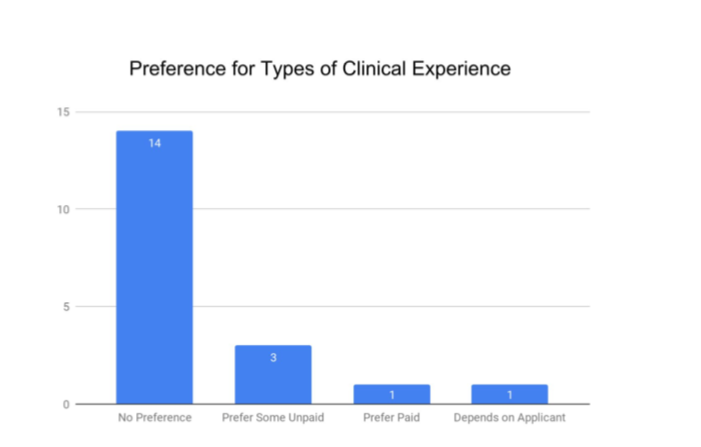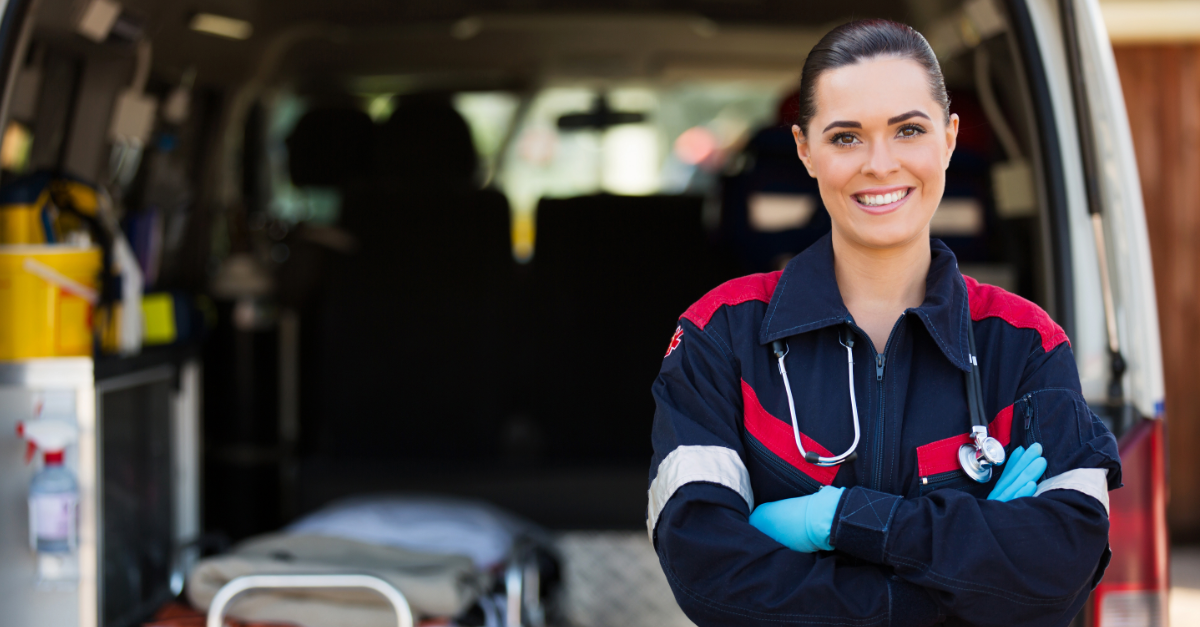Last Updated on June 24, 2022 by Laura Turner
Medical School Admissions Offices Weigh In
What kind of clinical experience do you need to get into medical school? Often, premedical students involve themselves in clinical volunteering at a local hospital and shadow physicians to get clinical exposure. But like many premeds who need to support themselves through school, or just want to get a head start financially, I wondered if working a paid clinical job could also fulfill the clinical experience requirement. After hearing mixed feedback from the SDN Forums, I decided to hear it straight from the horse’s mouth and asked admissions offices what their take on it was.
I contacted 33 admissions offices for allopathic medical schools about whether they had a preference for paid or unpaid clinical experience. Of these, 19 gave their input, as well as other useful information. See below for the breakdown of responding schools:

Medical school ranking was determined according to US News & World Report’s 2019 Research ranking. While this is just one ranking system among many, it is one popularly used by premedical students and serves as a proxy for admissions competitiveness.


So what do these schools think is appropriate clinical experience? 74% of respondents stated that they had no preference whether an applicant had gotten their clinical exposure through paid or unpaid experience. Three schools (16%) said they would prefer that clinical experience include some unpaid/volunteer work, and one school stated that paid clinical experience was preferred. Another school stated that it would depend on if the applicant needed to work. Further, two schools (11%) said that an applicant’s clinical experience should be in line with their long-term career goals.

Based on this data, it seems the vast majority of schools will not care whether you get your clinical experience as a volunteer in the ER, as a paid scribe, or through some other avenue.
While medical schools might not be picky about whether your EMT work was paid or unpaid, that’s not to say they don’t have preferences. A number of schools shared other information about what they’re looking for in an applicant’s clinical experience. 32% of respondents made a point that active experience is preferred, 11% said they prefer long-term commitments, and 16% stressed that applicants should show a significant commitment to the underserved, whether through clinical or non-clinical work. For those of you considering going abroad for medical volunteering, 11% also said they don’t care whether an applicant’s clinical experience is local or international.
As has been echoed on these forums and is supported by this survey, a great applicant for medical school will show evidence that they “know what they’re getting into.” That evidently means being involved in some kind of clinical experience long-term, and actively providing some kind of service to patients. Thankfully for those of us who need or want to work, that doesn’t mean your clinical experience has to be unpaid.
A final note: Of course, this survey is based on a small sample of allopathic medical schools and weighted toward private, top 40 schools. However, this does give applicants a better idea of what to expect from medical schools. If there is a particular school you’re interested in, consider asking them directly to see if they have preferences that differ from what I’ve found above.
